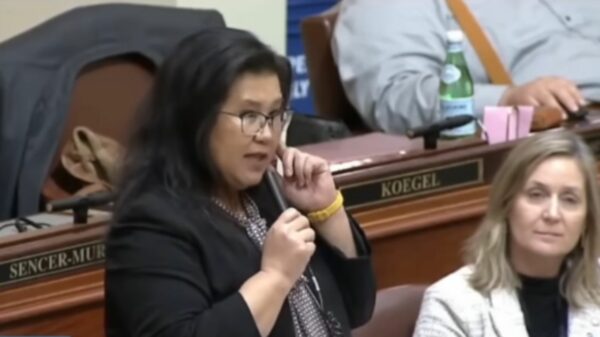In a surprising turn of events, the U.S. Supreme Court recently delivered a 7-2 decision that marks a significant victory for the administrative state. This ruling allows a federal agency to continue receiving its funding directly from the Federal Reserve Bank, bypassing the U.S. Treasury. The implications of this decision are profound, raising questions about government accountability and the separation of powers.
The Case Background

The roots of this case trace back to the aftermath of the 2008 financial crisis when Congress passed the Dodd-Frank Wall Street Reform and Consumer Protection Act. This extensive legislation, signed into law by President Barack Obama, included the creation of the Consumer Financial Protection Bureau (CFPB). Designed to regulate consumer financial products, the CFPB was the brainchild of Senator Elizabeth Warren and was intended to serve as a check on corporate power.
Unique Funding Mechanism

Unlike other federal agencies that receive funding through the U.S. Treasury, the CFPB’s funding comes directly from the Federal Reserve Bank. This arrangement was designed to ensure the agency’s independence, making it less susceptible to political pressures from Congress. However, this unique funding mechanism has been a point of contention and the central issue in the recent Supreme Court case.
Legal Challenge

The CFPB’s funding model was challenged in court by a group representing payday lenders, who argued that it was unconstitutional. The Fifth Circuit Court of Appeals ruled in their favor, stating that the funding scheme violated the U.S. Constitution’s Appropriations Clause. This clause ensures that no money is drawn from the Treasury without proper Congressional authorization, thereby maintaining legislative control over federal expenditures.
Supreme Court Ruling

In a surprising 7-2 decision, the Supreme Court ruled in favor of the CFPB, allowing it to continue its unique funding arrangement. Justice Clarence Thomas, writing for the majority, stated that the funding mechanism complies with the Appropriations Clause. The Court held that as long as Congress specifies the source and purpose of the funds, the arrangement is constitutional.
Majority Opinion

Justice Thomas explained that most federal agencies receive annual funding from Congress, but the CFPB’s setup was different by design. The statute allows the CFPB to draw necessary funds from the Federal Reserve System, subject to an inflation-adjusted cap. Thomas asserted that this funding method meets the requirements of the Appropriations Clause, which mandates legislative control over public money for specified purposes.
Dissenting Opinion

Justices Samuel Alito and Neil Gorsuch dissented, expressing concerns about the implications of the ruling. Alito argued that allowing an agency to draw funds independently from Congress undermines the legislative power of the purse. He warned that this could lead to unchecked government power, as agencies might operate without sufficient oversight and accountability.
Implications for Government Accountability

The decision has significant implications for the administrative state and the balance of power between branches of government. Critics argue that allowing agencies like the CFPB to fund themselves without Congressional oversight could reduce accountability. They fear that this might enable agencies to pursue agendas that are not aligned with the public interest, free from the checks and balances that traditionally constrain government actions.
Public and Private Intersection

The case also highlights the complex relationship between public and private sectors in government operations. The Federal Reserve, though quasi-private, plays a crucial role in funding a public agency like the CFPB. This intertwining of public functions with private financial mechanisms raises questions about transparency and control.
A Notable Victory

The Supreme Court’s ruling in favor of the CFPB’s funding mechanism represents a notable victory for the administrative state. By allowing the agency to continue receiving funds directly from the Federal Reserve, the decision supports the idea of agency independence. However, it also raises important concerns about accountability and the proper role of Congress in overseeing federal expenditures. As government agencies navigate this new landscape, the balance between independence and oversight will remain a critical issue.
Impact on the Balance of Power

What are your thoughts? What are the potential long-term effects of allowing federal agencies to receive funding outside of Congressional oversight? How does this ruling impact the balance of power between the legislative and executive branches of government?
Independence and Accountability

In what ways might this decision influence the independence and accountability of other federal agencies? What are the benefits and drawbacks of funding federal agencies through quasi-private institutions like the Federal Reserve? How does the unique funding mechanism of the CFPB affect its ability to regulate consumer financial products effectively?
Source: Facts Matter with Roman Balmakov






















